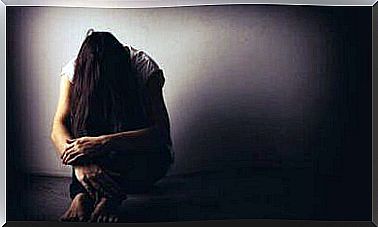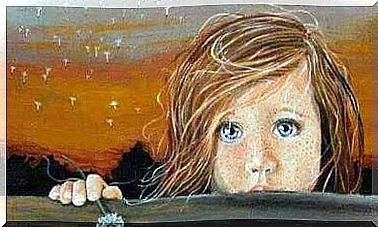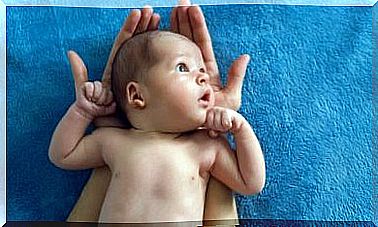Becoming A Father Can Cause Hormonal Changes
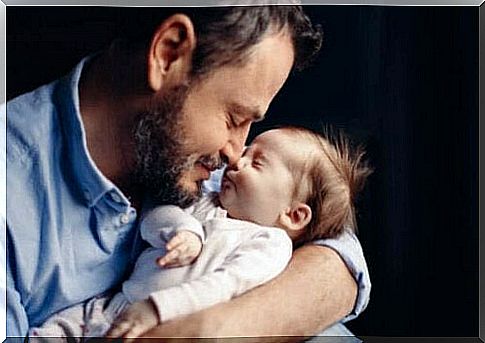
Becoming a father is a very intense experience for some men. So much so that some fathers experience a similar situation to women when they become mothers. Several studies show that fathers can also undergo physiological changes.
The studies showed that, on a biological level, men are born with the tools that enable them to be fathers. Tools also to enjoy the experience. Some are not very involved in raising their children. However, this fact is more related to cultural factors.
Just as being a mother means different things to every woman, men also have a wide range of experiences when it comes to fatherhood. What we know for sure is that nature gives both men and women what they need to make parenting meaningful and fulfilling.
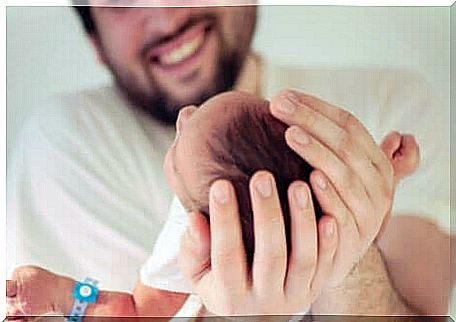
The hormones of fatherhood
A study conducted by researchers at Emory University and published in the journal Hormones and Behavior examined the relationship between the experience of fathering and hormonal changes. They recruited a group of volunteers who all had healthy children, one or two years old.
Researchers monitored the participants’ brain activity using functional MRI scans. They then showed each participant a photo of their child, a photo of an unknown child, and a photo of an unknown adult.
They found that when the participants saw pictures of their children, the neural activity in their brain systems associated with reward and empathy increased. This is due to an increased production of oxytocin, the well-known ‘love hormone’. Previous studies have shown that the same thing happens in mothers.
These data corroborate the conclusions of a 2014 study published in the journal PNAS . It also found that fathers who become their children’s primary caregivers exhibit brain activity very similar to that of mothers.
Postnatal depression
Postpartum depression is the feeling of sadness, emptiness and apathy that many women experience after giving birth. By some estimates, it affects as many as 30% of mothers. For some postpartum women, the experience is so intense that it is often confused with psychosis.
Nevertheless, a study by Dr. Craig Garfield in the medical journal Pediatrics, another side of that story.
The study found that a significant number of fathers also showed signs of postpartum depression. Researchers concluded that symptoms were more apparent in men who did not spend time with their children.
According to the data, up to 10% of new fathers experience these symptoms. They also found that in fathers, the equivalent of postpartum depression begins between the third and sixth month of the baby’s life. In mothers it usually starts shortly after giving birth.
According to Canadian psychologist Francine de Montigny, another expert in the field, one in ten men experiences postpartum depression. She believes that what causes these symptoms is the fear of failing as a father and the struggle for the mother’s love and affection.
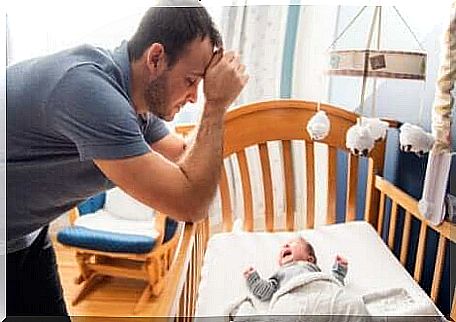
Becoming a father today
In strictly patriarchal societies, fatherhood is devalued. In these societies, fatherhood is more about taking responsibility for the child and less about emotions.
However, in recent years, many more fathers have become fully involved in the education of their children. They have proven that you can achieve balance.
The studies mentioned above confirm these thoughts. They even show that the experience of being a father produces positive hormonal changes. The increase in oxytocin production mentioned in the first study implies a state of mind close to happiness.
In the second study, the factors that lead to postpartum depression are more psychological than physiological. What we know for sure is that they exist and are often ignored.
Becoming a father can be great. Taking full responsibility and immersing yourself in fatherhood can boost your well-being. Nevertheless, the data shows that men also need support and understanding to enjoy this beautiful experience.





